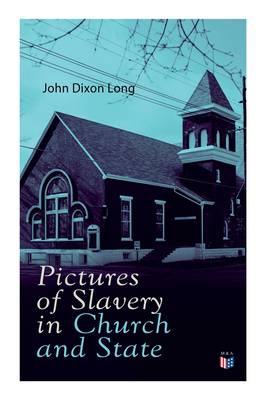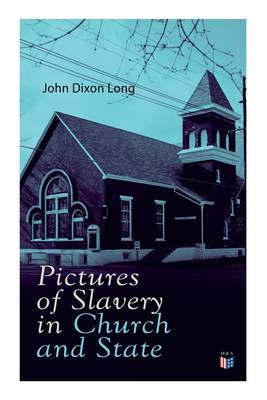
- Retrait gratuit dans votre magasin Club
- 7.000.000 titres dans notre catalogue
- Payer en toute sécurité
- Toujours un magasin près de chez vous
- Retrait gratuit dans votre magasin Club
- 7.000.0000 titres dans notre catalogue
- Payer en toute sécurité
- Toujours un magasin près de chez vous
Pictures of Slavery in Church and State
Including Personal Reminiscences, Biographical Sketches and Anecdotes on Slavery by John Wesley and Richard Watson
John Dixon Long
Livre broché | Anglais
22,45 €
+ 44 points
Format
Description
In "Pictures of Slavery in Church and State," John Dixon Long delivers a poignant critique of the institution of slavery as it permeated both ecclesiastical and governmental realms in 19th-century America. With a meticulous approach, Long intertwines historical analysis with moral philosophy, rendering a compelling narrative that exposes the contradictions between Christian doctrine and the practice of slavery. The book employs an accessible yet intellectually rigorous literary style, characterized by rich, descriptive prose that elucidates the moral quandaries faced by those who professed faith yet participated in oppressive systems. Long's narrative is situated within the broader context of antebellum America, drawing connections to contemporary societal issues that resonate with modern readers seeking to understand the legacy of oppression. John Dixon Long, an ardent abolitionist and theologian, was deeply influenced by his environment and the moral failures of institutions he held dear. His scholarly journey reflects a broader movement among reform-minded intellectuals who grappled with the ethical implications of slavery. Long's passion for social justice and profound theological insights provided the impetus for this illuminating work, as he aimed to awaken conscience and inspire action against the evils of human bondage. This book is highly recommended for both scholars and general readers interested in American history, theology, and the moral complexities surrounding slavery. Long's artful exposition not only serves as a historical document but also challenges readers to reflect critically on the intersections of faith, power, and human rights, making it an indispensable contribution to the discourse on justice and morality.
Spécifications
Parties prenantes
- Auteur(s) :
- Editeur:
Contenu
- Nombre de pages :
- 196
- Langue:
- Anglais
Caractéristiques
- EAN:
- 9788027334124
- Date de parution :
- 15-10-19
- Format:
- Livre broché
- Format numérique:
- Trade paperback (VS)
- Dimensions :
- 152 mm x 229 mm
- Poids :
- 267 g

Les avis
Nous publions uniquement les avis qui respectent les conditions requises. Consultez nos conditions pour les avis.






